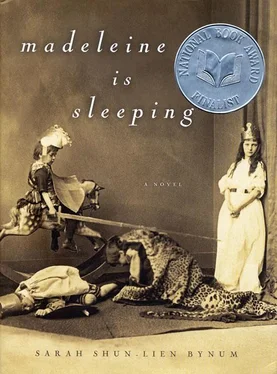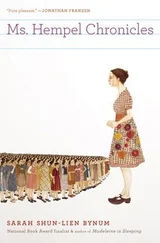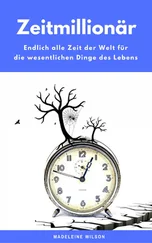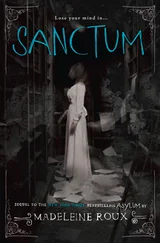0FF the bundle goes, spinning like a top. It leaves a trail of string in its wake, tracing a desultory pattern across the floor.’ When it skitters out to the edges of the ring, Bernadette swoops down and opens her arms, but as soon as she can feel its whir, away it goes in the opposite direction, obeying a gravity of its own. Its progress is dizzying; heaps of string litter the stage. The bulge unravels into a ghost of its former self, until all that is left is a latticework of twine, suspended, still quivering, in midair. Madeleine has vanished.
mother is startled by a thunderous thump, and Madeleine moans in her sleep. Looking up from her cauldron, she sees Papa, cheek Battened against the warm Bank of a cow, arm extended and pointing placidly at their roof. Matilde has alighted there, and left droppings beside their chimney. Mother bustles outside and gestures at Matilde with her spoon: Not today, Madame, please! Madeleine is sleeping. The wings of the fat woman swell: I am conducting a scientific experiment. I should not be long. She stoops down and sniffs her droppings. Roses! she announces. It smells like roses! How wicked! Mother gasps and seeks shelter inside, her head protruding from the door so that she can remind Matilde: Only the saints’ bones should smell like roses. You must have made a mistake
MADELEINE is awoken by the reek of roses, and-when she opens her eyes, she sees the gypsy mama, swabbing off her dusky complexion with a handkerchief soaked in rosewater. Beneath, her sk’«n is tuber pale and porous. So you are not a real gypsy? Madeleine asks, extracting herself from the depths of a flabby divan. Heavens no! the woman exclaims. I was only acting. Then please take me back to Sister Clavel, Madeleine says with decision. The woman laughs, and her voice pirouettes in the air like one of her willowy acrobats: You may call me Marguerite, she says. And then she resumes at the mirror.
it is no mistake. Matilde has made a survey of her own droppings, keeping assiduous record of her mood, the direction of the wind, the sun’s position in the sky. Since she has taken flight, she is most often seen scratching away in the leatherbound diary she keeps stashed between her breasts: leaning up against someone’s chimney, or resting in the crotch of a pear tree, her stubby legs dangling cheerfully. In the left-hand column, the data: a loaf of bread and half a pot of preserves; buttermilk; leg of lamb with mint sauce; beer; feeling melancholy; a moderate breeze from the southeast; sun barely past the church spire. In the right-hand column, the results, which are inexorably the same: chalky color, pasty to the touch, and redolent with roses. The scientific spirit has infected Matilde; like her, these droppings are the product of inexplicable change. Atop the village’s roofs, which now serve as her laboratory, she hitches up her skirts and relieves herself. She contemplates the evidence and is puzzled by the enormity of the transformation — the seedy strawberries, the marbled side of ham, the bumpy rind on a wheel of Camembert— all reduced, distilled, made uniform: nothing is left of them except this puddle of excrement, white as an eggshell, and fragrant as June. Jean-Luc, who has been waiting for her visit, climbs over Claude and slides out of the bed. Before Mother can catch him, he has rushed out of the house and hoisted himself onto the trellis. He trembles on the highest rung, but only his forehead rises over the edge of the thatching. Pardon me! he cries. Matilde leans over the edge to see him better. Her bulk casts a shadow over Jean-Luc’s upturned face. My kites got tangled, he says, and jerks his head towards the pasture, where a fragile forest of kites has knotted itself into a skein. They flap fretfully against the sky. Will you please untangle them? he asks. Matilde squints at him. She recognizes his froggy voice, remembers that he could throw far and accurately. She suddenly misses her slow and suety processions. Astride a rooftop, above the hubbub of those bound by gravity, she longs for the market days when she paraded down the street. Very well, she agrees and struggles to her feet, her wings thrashing the air. Jean-Luc loses his balance and tumbles down into Mother’s gesticulating arms.
the gypsy camp is disappointing in its tidiness. No smoking fires, no wagons painted in raffish reds and golds, no unmentionables hanging from the windows to dry. Instead, the camp is an outpost of sorts, a miniature rococo fantasy, the creamy-colored caravans are ornamented with flutings and fig leafs, and brocade curtains hunker in the doorways. In the gypsy mama’s window boxes, a tiny but well-manicured topiary grows where geraniums ought to be straggling. Madeleine’s bandaged hands have wilted by her sides, and she slumps dejectedly on her stool. Trying to cheer her, Marguerite waves a pair of glittering shears in the air, as long and keen as a sword. Be brave, she instructs Madeleine. Don’t move a muscle. The scissors dive down between Madeleine’s shallow breasts, she shivers, and Marguerite brings the blades together with a snap. The monstrous dress falls to her feet, neatly cleft in two. A sartorial disaster, Marguerite says as she repockets her enormous shears. She setdes down onto her haunches: Now, give me one of your hands. And she takes hold of the little bundle, so dear that she can hardly bear to touch it, like a butterfly collector cradling a cocoon. Her fingers By over the bandages as if they were reading Braille; soon she has discovered and disinterred the ragged end. Madeleine watches mildly as the punished hand is unwrapped. I She sees that her hand has healed-The fingers have mended together, sewn up tightly along the seams. My hand looks like a paddle, Madeleine says. That might prove useful, Marguerite replies.
Madeleine stares down at the two paddles sitting in her lap. An accident? Marguerite inquires. Madeleine shakes her head. I feared not, the woman sighs. And straightening up, she resumes a conversation that Madeleine can’t recall their ever having: Among the first parts written for me was Lucretia. An old story* a woman raped by the son of a tyrannical king. There is nothing left of her but shame and rage. From hell I shall seek his ruin, she sings. With savage and implacable fury. And then she does herself in at the end. Sword through the breast — J pantomimed the whole thing. The Marquis Ruspoli said he felt shivers running up and down his spine. When the composer came to kiss my hand, I hissed at him, Don’t ever write such a role for me again. Marguerite draws her scissors from her pocket as though she were unsheathing a terrible blade. I told him, Make me a general. Make me a son. If you give me a sword, let me bury it in Ptolemy’s side. For who wants to be a woman wronged? With no recourse but wretchedness and death? Not I, Marguerite declares, her blade flashing. Not I! Her gaze falls suddenly upon Madeleine, who is caught unawares. She thought that Marguerite, in the throes of her story, had forgotten her. The woman narrows her eyes: Do you understand me? The girl shrugs. I suppose so. Marguerite takes the injured hands in her own and says, coldly, You are disgraced. Disfigured. So what will you do now? Madeleine announces an idea that has occurred to her only a few seconds before, as she reflected on how pleasant it felt to be wearing only her underclothes. She says, with dignity. I plan on being a tumbler. Or a contortionist. Whichever I am better at. Marguerite claps her hands. Her severity gives way, in an instant, to laughter. My dear child! she cries, voice lifting into song. If drinking is bitter, Marguerite sings, become wine.
Читать дальше












